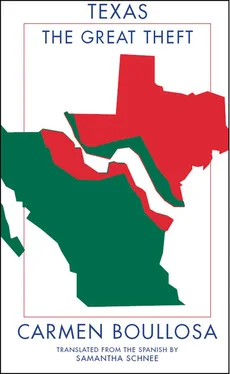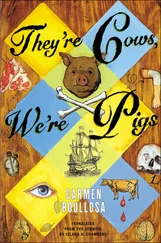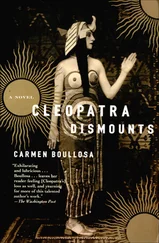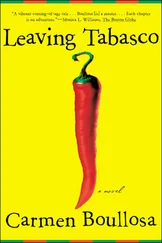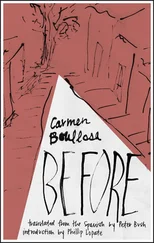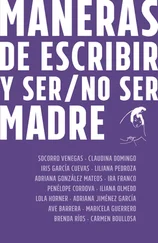In Galveston, no sooner has the phrase made it off the boat than it doubles back southward, finding passage on a steamboat that’s just arrived from Houston and is headed to Puerto Bagdad, Mexico, almost directly across the river from Point Isabel, Bruneville’s seaport. The majority of the passengers are Germans who’ve spent the better part of the trip’s first leg singing songs from the old country, accompanied by a violin, a horn, and a guitar. They even have a piano on board, but no one can play it because it’s wrapped for shipping.
One passenger, Doctor Schulz, is one of the famous Forty, the Germans who came to the New World to build a new world. In 1847 he helped establish the colony of Bettina (named after Bettina von Arnim, the writer, composer, social activist, publisher, patron of the arts, and acolyte of Goethe—“My soul is an impassioned dancer”). In Bettina there were three rules: Friendship, Freedom, and Equality. No man was treated differently from the next; there was no such thing as private property; and they all slept together in a long house that wasn’t remotely European, with a thatched roof and a tree trunk in the center. The butcher prepared wild boar for the communal table.
Each of the Forty wore beards. The youngest was seventeen and the two eldest were twenty-four, free thinkers one and all. No one knows why they lasted only one year. There are lots of stories: some say that they harvested only six ears of corn because no one wanted to do any work (it’s true they spent most afternoons guzzling whiskey from barrels they had brought from Hamburg), while others say it was because of a woman, which makes no sense, because there weren’t any women in the colony.
When the community disbanded, the piano itself proved a source of friction. Schulz asked to take it — it had been a present from his mother — but because “everything belongs to everyone” it was nearly chopped up into pieces. In the end, the piano, which had accompanied the doctor on his long voyage from Germany, is making its way with him to Mexico. This part of his travels has taken a good long while. Schulz plans to set up shop as a doctor in Puerto Bagdad, where the piano will once again be played.
Another German passenger, Engineer Schleiche, began the trip from Houston half-heartedly, and by the time he arrives in Galveston he’s decided that life without his Texan girlfriend would be empty, meaningless. He decides to jump ship and wait for the next steamboat to New York, where the girl has fled, tired of waiting years for a marriage proposal that never came.
Although Schleiche finds Galveston beautiful — and it is — he is disgusted by the loose morals of its locals. He is at his hotel, giving instructions about having meals delivered to his room (he’s decided not to set foot outside until the steamboat is ready to depart “this den of iniquity”), when he hears about Shears’ insult and who the sheriff is; he already knows all about Nepomuceno. Fearing the worst, he instantly shuts himself in his room, so he’s not up to date on everything else that happens, and arrives in New York with only the first words uttered by Shears.
Schleiche was not one of the founding Forty from Bettina; as assistant to Prince Solms, he arrived in an earlier Prussian migration from the Adelsverein, or Society of Noblemen, the aristocrats who founded the Nassau Plantation in ’45 (his godfather was the Prince of Nassau). The nobles acquired land and servants (they bought twenty-five slaves) but the society broke up a few years later, for reasons different from those of the Forty.
Generally speaking, the Germans were appalled that a gringo sheriff would insult such a well-respected Mexican — you could say what you want about Nepumuceno but no Prussian would ever accuse him of stealing a cow. (Admittedly the Germans were clueless about cattle; they were useless when it came to livestock—“If a Kartofel lays a hand on a cow, she keels over.”)

When the third-class carpenter-sheriff came out with his little insult in 1859, it was only 24 years since Texas had declared and won its independence from Mexico, through a series of skirmishes and battles, some of which were fought more fiercely than others, and both sides have continued to accuse each other of atrocities ever since. Say what you will, the truth is the Texans won the war by river and by sea because the Mexicans didn’t have a navy to speak of; during the entire Spanish occupation not one Mexican was trained to lead a flotilla, and they didn’t have any boats anyway.
Texas declared its independence in 1835. Since the Mexicans had invited Americans to live on large tracts of their land, granting them land concessions at very favorable rates, this declaration didn’t sit well with them. That’s why the military confrontations, skirmishes, and battles between Mexicans and Texans didn’t stop.
In ’38, more than a thousand Comanches coordinated attacks south of the Río Bravo on ranches, towns, and settlements. Since the Texan rebellion, not one Mexican had been able to go out and kill Comanches and Apaches in the Indian Territory — it had become impossible to cross the Republic of Texas because the warlike tribes were running roughshod over the countryside, stirred up by the arrival of new tribes from the north and the disappearance of the buffalo.
In ’39, the Texan Congress gathered in Austin, which was declared the capital of the Republic. Skirmishes continued.
In ’41, two thousand Texan soldiers were taken prisoner by the Mexicans and incarcerated in Mexico City.
In ’45, Texas was annexed by the United States. It went from being an independent republic to becoming one of many stars on a foreign flag. Although it seemed like a terrible idea, it wasn’t bad at all, because it completely changed the balance of power with Mexico. The struggle for the Texan frontier worsened. The Texans argued that everything from the Nueces River to the Rio Grande was theirs. The Mexicans denied the claim, saying that it wasn’t in their previous agreement.
And that’s how it came to pass that the American army invaded Mexican territory in 1846. Shortly thereafter they declared victory and took over the disputed territory, and the land between the Nueces River and the Rio Grande was no longer Mexican.
Throughout these war-torn years, Doña Estefanía was the one and only legitimate owner of the land called Espíritu Santo , which extended far into the territory that became American. It made no difference that she was a savvy landowner, with herds of livestock and good harvests (mostly beans, but she had different crops on her other ranches). Stealman arranged to carve off a healthy (and profitable) portion of her lands. And it was on this profitable stretch of land that he established Bruneville, selling plots at inflated prices, which was a great business.
Eleven years have passed since the town of Bruneville was founded on the banks of the Río Bravo, just a few miles upriver from the Gulf. It was named after Ciudad Bruneville, the legendary shining city to the northwest, which was razed by the Apaches. In appropriating the name, Stealman aimed to trade on the good reputation of the original.
At its founding, the following were present (without a shadow of a doubt):
AStealman, the lawyer;
BKenedy, who owned the cotton plantation;
CJudge Gold (back then he was just plain Gold, he hadn’t yet earned the nickname Judge);
DMinster Fear, his first wife, and their daughter Esther (may the latter two rest in peace);
EA pioneer named King.
King had a royal name, but when he’d arrived in Mexico he hadn’t a penny, he didn’t even own a snake. But he had the Midas touch. When some locals lent him low-grade land to use for seven years, it took him only a few months to emerge as the legitimate owner of immense tracts on which it seemed to rain cattle from the clouds, as if they were a gift from God. But there was nothing remotely miraculous about the way King made his fortune. He was as good a trickster as any magician with a false-bottomed top hat. If King had been Catholic (as he claimed to be in the contract he signed with the Mexicans), the archdiocese could have been able to build a cathedral with what he’d have paid for his sins.
Читать дальше
